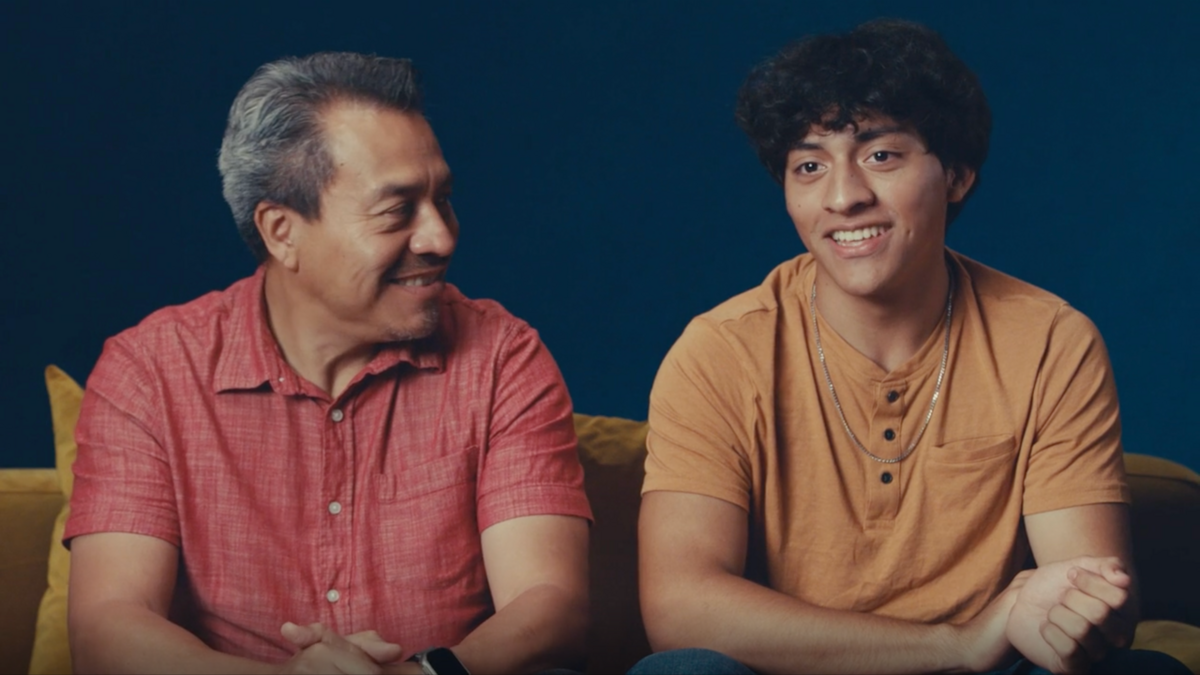Developing tools for positive parenting in face of 21st-century challenges

Child Mind Institute is an independent national nonprofit organization with a mission to help children with mental health and learning disorders. Photo courtesy Child Mind Institute
Top ASU psychology professors with expertise in trauma-informed parenting interventions have joined with the Child Mind Institute to develop videos and tools to directly help families dealing with some of the most pressing, confusing and challenging questions of our current times.
Child Mind Institute, an independent national nonprofit organization with a mission to help children with mental health and learning disorders, launched the Positive Parenting, Thriving Kids project with funding from the California Department of Health Care Services in early 2024.
The project consists of 40 videos in both English and Spanish and features more than 150 caregivers, kids and experts tackling issues such as separation and divorce, grief, community violence and parental mental health concerns. Each video is paired with downloadable learning guides with tips, tools, and links to additional evidence-based resources.
Arizona State University experts from the ASU REACH Institute, which is within the Department of Psychology, played a major role in developing this project.
ASU REACH faculty involved include Sharlene Wolchik and Abigail Gewirtz, co-directors of ASU REACH, Professor Irwin Sandler and Assistant Professor Joanna Kim.
Nancy Eisenberg, Regents Professor in the Department of Psychology, and two ASU alumni — Professor Qing Zhou of University of California, Berkeley, and Rachel Haine-Schlagel, associate dean for research at San Diego State University — also contributed to the project.
Integrating science with real-life, practical tools
The first stage of the project involved a number of focus groups with the experts to determine the topics for the videos. The team provided input for the videos based on their areas of expertise to narrow down the best topics for families and what talking point would best resonate with families.
Joanna Kim explains how the experts engaged with the development process.
“The focus group asked a lot of questions about what we (the experts) thought would be engaging to parents, such as 'What do we think parents would want to hear? How can we adapt the content to foster inclusion? And what resources should be included?'" Kim said. "We were also asked what communication strategies and creative concepts we thought would be most engaging to parents.”
As the project progressed, Sandler became one of the key developers of the program.
“(Sandler’s) level of involvement was more than we were hoping for," said Dave Anderson, vice president of public engagement and education for Child Mind Institute. "What began as an opportunity to provide expert guidance turned into much more. As the project unfolded, he contributed to every facet, playing an integral role in inviting feedback from a nationwide network of scholars, reviewing scripts and rough cuts of videos line by line, and developing the talking points for the divorce and separation and grief videos as well as providing the background research to develop the learning guides.”
“When I first got involved in the project," Sanderson said, "I was skeptical about the effectiveness of using short videos to deliver evidence-based parenting skills, but as I became more involved with the project, I saw the potential that these videos could raise public awareness and, where appropriate, increase motivation to use evidence-based strategies to deal with parenting challenges.
Access the materials
Find the videos and print resources at childmind.org.
"After the videos were launched in early 2024, I am continuing working with Child Mind Institute in research on the effectiveness of the program. It will be particularly interesting to learn the degree to which these brief videos may motivate parents to make positive change, and to use evidence-based resources.”
Kim, similarly, was not only involved in the research to develop the videos but also ended up playing a big part in front of the camera.
"We flew the 20 experts in from around the country to a New York studio in October, across four days, to film their commentary," Anderson said "Kim was one of those selected and ended up in six or seven of the videos and was also selected to appear on 'Good Morning America' to discuss the project."
“There's a lot of information out there on TikTok and Instagram, but so much of that information isn't good parenting information," Kim said. “What I love about this project is that they got real families talking about their lived experiences. There's a diversity of experiences and diversity of challenges. They're showing how different families have gone through different struggles, and come up on top and become stronger, and how kids have gotten stronger.
"I think these videos do a really beautiful job of integrating the science and evidence with real-life practical tools.”
More Health and medicine

Reducing waste in medical settings
Health care saves lives, but at what cost? Current health care practices might be creating a large carbon footprint, according to ASU Online student Dr. Michele Domico, who says a healthier…

ASU offers bilingual counseling to Spanish speakers
Arizona is one of the five states in the nation with the highest percentage of Hispanic residents, according to the U.S. Department of Health and Human Services Office of Minority Health, and …

College of Health Solutions launches first-of-its-kind diagnostics industry partnership to train the workforce of tomorrow
From 2007 to 2022, cytotechnology certification examinees diminished from 246 to 109 per year. With only 19 programs in the United States, the cytology workforce that stands at the front line of…


